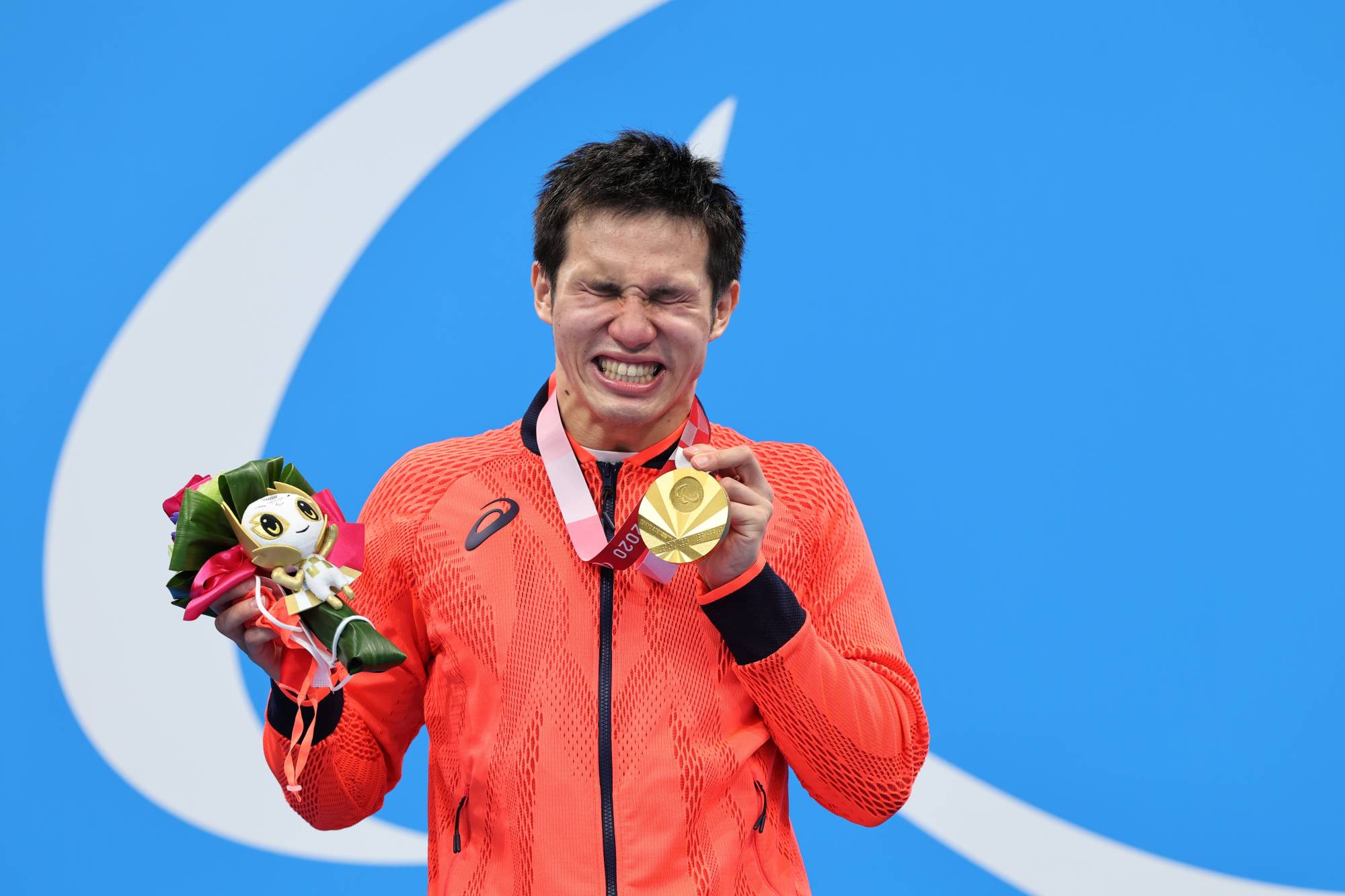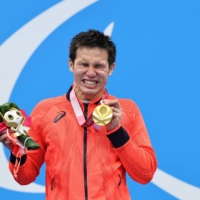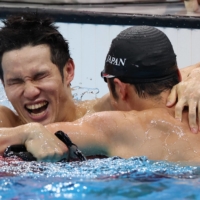Japan's Keiichi Kimura broke through for his long-awaited maiden Paralympic gold medal Friday at the Tokyo Games, winning the men's 100-meter butterfly S11 class ahead of compatriot Uchu Tomita in a one-two finish for the host nation.
The fastest qualifier for the final, world champion Kimura touched the wall at Tokyo Aquatics Centre in 1 minute, 2.57 seconds, with Tomita 1.02 behind. Brazil's Wendell Belarmino Pereira swam 1:05.20 to take bronze in the race for swimmers who are blind or have very limited sight.
Kimura, who has now won eight Paralympic medals dating back to the 2012 London Games, considered the possibility he might never win a coveted gold following the one-year postponement of the Tokyo Games due to the coronavirus pandemic.
"The uncertainty throughout the past year was the toughest time for me," said the 30-year-old, who broke down in tears after Tomita placed the gold medal around his neck.
"I don't know what the medal looks like, but when I heard the Japanese anthem being played, I realized I had got the gold medal, and the tears just came flooding. It was extremely emotional." The moment was also emotional for the 32-year-old Tomita, who said it was extra special to stand on the podium next to Kimura, someone he has "respected ever since I started competing."
"Swimming alongside him, I've gotten to know how brilliantly he can perform. Getting silver is one thing, but doing it with him winning gold in front of me is really special," Tomita said.
"I can't be happier than this. I've won silver and Kimura-san won gold. Gold and silver, it's the happiest moment of my life."

The medal was the second of these Paralympics for Kimura and third for Tomita. Kimura took the men's 100 breaststroke silver, while Tomita captured 400 freestyle silver and 200 individual medley bronze in the S11 classification.
Having won two silver and two bronze medals at the 2016 Rio de Janeiro Games, as well as one of each at the 2012 London Games, the victory finally secured gold for Kimura at his fourth Paralympics.
The Shiga Prefecture native, who lost his vision at age 2 due to a condition called proliferative vitreoretinopathy, began attending a boarding school for students with visual impairment at 4, eventually taking up swimming there as a fourth grader.
Following the Rio Games, he moved his base to the United States in 2018 to work with coach Brian Loeffler at Loyola University Maryland in Baltimore, with the aim of reaching the top of the podium in Tokyo.
Tomita, who was diagnosed at 16 with retinitis pigmentosa, which first affected his vision while he was in high school, said he hoped to help the image of people with disabilities with his performance at the games.
"It's a message that people with disabilities can achieve something," he said.





